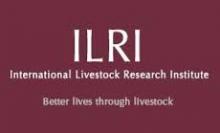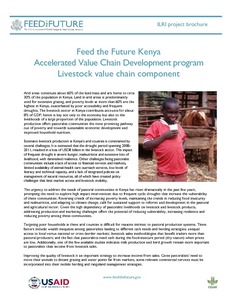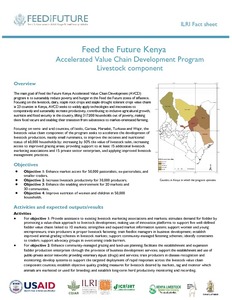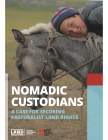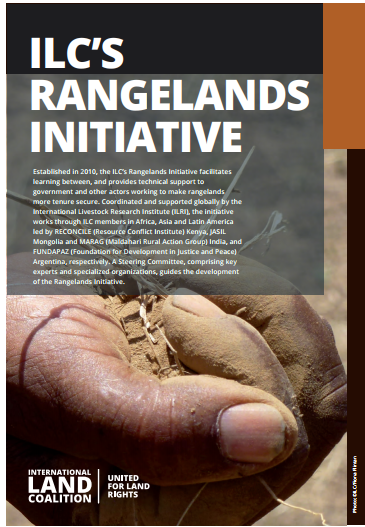Location
Vision, mission and strategy
ILRI's strategy 2013-2022 was approved in December 2012. It emerged from a wide processof consultation and engagement.
ILRI envisions... a world where all people have access to enough food and livelihood options to fulfil their potential.
ILRI’s mission is... to improve food and nutritional security and to reduce poverty in developing countries through research for efficient, safe and sustainable use of livestock—ensuring better lives through livestock.
ILRI’s three strategic objectives are:
- with partners, to develop, test, adapt and promote science-based practices that—being sustainable and scalable—achieve better lives through livestock.
- with partners,to provide compelling scientific evidence in ways that persuade decision-makers—from farms to boardrooms and parliaments—that smarter policies and bigger livestock investments can deliver significant socio-economic, health and environmental dividends to both poor nations and households.
- with partners,to increase capacity among ILRI’s key stakeholders to make better use of livestock science and investments for better lives through livestock.
This is ILRI’s second ten-year strategy. It incorporates a number of changes, many based on learning from the previous strategy (2000–2010, initially produced in 2000 and modified in 2002), an interim strategy (2011–2012) and an assessment of the external and internal environments in which the institute operates.
Members:
Resources
Displaying 176 - 180 of 1152Feed the Future Kenya Accelerated Value Chain Development program: Livestock value chain component
Feed the Future Kenya: Accelerated Value Chain Development Program—Livestock component
Bringing insurance innovation to the pastoral areas of southern Ethiopia
This film describes the experience of Index-Based Livestock Insurance payouts in Borana, southern Ethiopia, in 2014, with interviews of livestock keepers, providers and partners.
Nomadic Custodians: A Case for Securing Pastoralist Land Rights
As part of the Global Call to Action in Indigenous and Community Land Rights, this brief puts the spotlight on the need to secure land rights for the world's pastoralists, as pastoralism is practised by an estimated 200-500 million people. Pastoralists manage rangelands that cover a quarter of the world's land surface but have few advocates.
"Pastoralists have been widely accused of being economically inefficient and turning their ‘over-grazed’ pastures into deserts. But these presumptions are not based on evidence and are usually very wide of the mark."
Rangelands Initiative
The goal of the Rangelands Initiative is increased tenure security of local rangeland users through improved implementation of enabling policy and legislation. By connecting, mobilising and influencing, the Initiative strengthens ILC members’ activities in-country and across its continental platforms.

